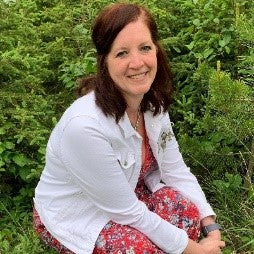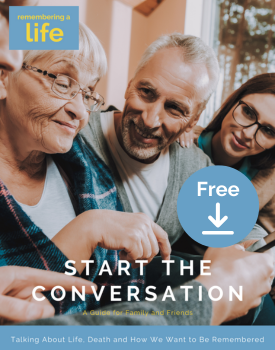This morning I sat, holding my morning coffee, the warmth spreading through my hands as I watched the sunrise over the trees from my back window. I can’t help but let my mind wander to the family whom I served earlier this week. The mother, whose sunrises will never look the same, the pain rising up from her chest to her throat making her coffee difficult to swallow . I think of the father who, by nature, is carries blame for not being able to help his son overcome the challenges he faced with addiction. I think of the sister, now an only child, her first childhood friend; lost in such a senseless death. Families like this, all through this year I have had the privilege of serving, feeling blessed, yet simultaneously wishing they never had the need to be connected to me. I believe very strongly that when I am connected to a family to walk alongside, I am where I am meant to be. This family was no different, their son and brother forever a piece woven into my ever-growing tapestry of life.
Over the past two years that I have been a Life Celebrant, nine of the families that I have served have lost a youth or young adult child to drug overdose. This is a sad reality of the world we live in today. Perhaps even sadder than the epidemic we are faced with is the stigma that goes along with it. Often families amid their unbearable heartbreak of losing a child are faced with shame, guilt, and fear of being judged, both themselves and their child. How does one show up and serve a family that is sitting with such complex grief?
Walking into a room with parents in this position the stage while set with different characters, almost always looks and feels the same. The fear of being judged hangs heavy in the air, expressions of guilt for not being able to save their child weighing them down. Unsure how they can even have a funeral service, admitting to the world their child died a premature, preventable death, taking with them all the aspirations that we as parents hold for our children.
How does one navigate such a rocky path? There really is no complex answer, simply put; you show up without judgment, holding space and meeting the family where they are at. The most important thing is - this needs to be sincere. The phrase “fake it until you make it” does not apply here. If the Celebrant or Clergy charged with carrying out the service is insincere in their empathy the family will pick up on this miles away. We must remember these families are raw with emotion, hyper vigilant and wanting to protect their child's memory at all costs. Oftentimes sitting with a family planning the service the initial wish is to never mention how their child died. This is not who their child was. They are not wrong.
It may come as a surprise to some, but when planning any memorial service or celebration of life, the death piece is the least important part of the service. When a young person passes tragically from a drug overdose - this is only a single chapter in their lives, not the whole story. Their story is pages upon pages bound together. Stories of their favorite color, their first day of school, what they liked on their pizza, Christmas morning traditions, childhood friends; that is where the focus lies. I personally believe that it is best to not turn a blind eye to the cause of death being a drug overdose. When the time is right or when I am asked I will share this view with the family, gently navigating them away from the story that somehow they could have changed all of this. If only love alone was enough.
Often in the beginning families will want no mention of the cause of death; but when you show up with sincere empathy, with no judgment a magical thing unfolds. This family who desperately just wants everyone to see the beauty in their child, sees that a stranger in the room has connected with who their child was before drugs, whether it be an accidental overdose after using drugs for the first time, or if they have succumbed to a long battle with addiction. When this stranger sees them as grieving parents who loved their child unconditionally and does not question what they could have done better, they feel safe. When you sit across the table and affirm that they did their very best to help their child live; parents and other family feel safe to talk about how their child died.
When parents ask for guidance on how to handle the service I give my honest opinion, with the caveat that there is no right or wrong way to navigate this. I do have my thoughts. Pull up a chair for the proverbial elephant in the room, he is welcome but must sit in the shadow, he will not be the main character in this story. He is there in the background, to be acknowledged but nothing more. By doing this it puts the room at ease, it sends the message that there is no shame to be had and while it is never a family’s responsibility to contribute to a cause, it starts a conversation, peeling away layers of stigma. For many, bringing awareness to the drug epidemic we are facing, brings along with it a sense of meaning to their child’s passing. This in itself can begin the healing process.
When a mother looks at me and says “I wish I never had to meet you..” I understand her, I hear her. I wish that there was no need to be of service to families who have lost a child or any loved one to drug overdose; the sad reality is that this is an epidemic we face in today’s world. It's my hope that showing up with no judgement, with compassion, and sincere empathy that myself and others serving families in this capacity we can help to illuminate their path, if only for a moment in time.


